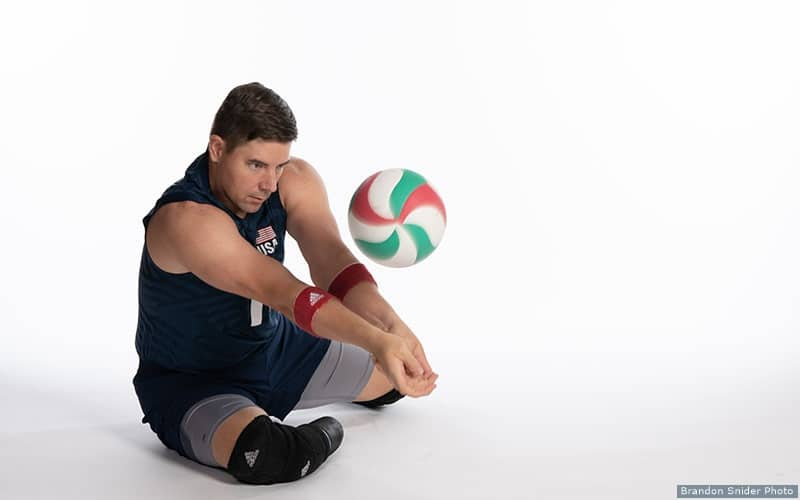
Charlie Swearingen, when not playing for the U.S. Men’s Sitting National Team, has devoted much of his adult life to emergency medical care for individuals in need. And recently, that has crossed over into helping multiple communities to teach methods to treat COVID-19.
Swearingen, a certified flight paramedic with more than a decade of experience, created his own business Meducation Specialists in 2010.
“I design and deliver continuing education activities as well as test preparation activities,” Swearingen said about his offerings with Meducation Specialists.
Swearingen was also a clinical education manager and clinical compliance manager at Air Methods, a leading provider for emergency medical services.
Based on his work experiences, Swearingen is a sought-after clinician to assist organizations needing medical services, including teaching ventilator use all over the country that began as a personal crusade.
“About eight years ago I began a crusade to learn as much as I could about these ventilator machines and how I could best harness their benefits with respect to the care of my patients,” Swearingen said. “I’m not a respiratory therapist nor a physician. However, as a flight paramedic, I transport severely sick or injured patients routinely on the ventilator.”
Swearingen has shadowed respiratory therapist and physicians, asked the tough questions all while studying and putting what he has learned into a clinical practice. It led him to write a book that has sold thousands of copies. And he has traveled the country for years conducting classes and skills labs.
Providing Valuable Learning Tools
Ventilators have been a primary tool to combat seriously ill patients in intensive care with COVID-19, and Swearingen’s background in the device has led to frequent contacts for his services from different groups including the military. Through Meducation Specialists, Swearingen was recently contracted by Level One Accountability, a company based out of Nashville, Tennessee, with a substantial military contract.
“I crafted a ventilator course for them to be delivered to several high-ranking military officers in the state of Tennessee,” Swearingen said. “So, while I have been doing it a while, training military front line medical professionals has been a new development since COVID-19.”
Swearingen was able to teach ventilator procedures to a wide range of military personnel on the recent assignment.
“Those in my most recent courses have ranged from master sergeants to a colonel,” Swearingen said. “Lots of captains, majors and lieutenant colonels in the Army and Air Force benefited from my experiences with ventilators.”
Swearingen loves being able to pass on his knowledge on ventilators, but he yearns to return to the volleyball court with his teammates. However, before training and competition resumes, he has his own ideas for when it is safe to return to the court.
“As a clinician and volleyball player, I’d like to see guidelines that include temperature measurements prior to play, players being symptom free for 7-14 days as a stipulation to play, routine use of hand sanitizers throughout practice especially for sitting players, tracking and testing should symptoms arise following play, and good communication of all this information,” Swearingen said. “These kinds of guidelines would make me feel safer about returning to play.”
The U.S. Men’s Sitting Team, ranked No. 7 in the world, was set to host the Tokyo 2020 Men’s Final Paralympic Qualification Tournament March 16-21 in Edmond, Oklahoma, before the event was canceled due to the pandemic. Now Swearingen and his teammates await to find out how the eighth and final spot into the Tokyo Paralympics will be decided.
